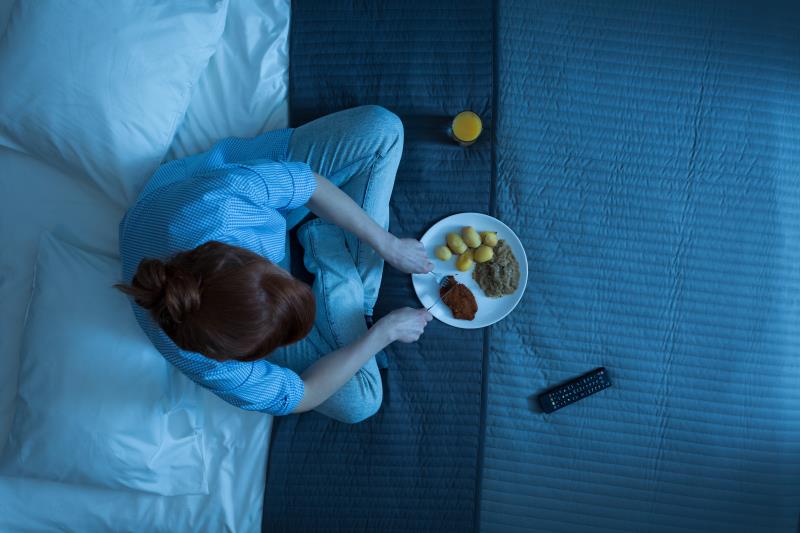No need for fasting before cardiac catheterization, suggests study





Having no restriction on oral food intake before cardiac catheterization appears to be as safe as the current standard fasting strategy, according to the CHOW NOW randomized trial presented during the SCAI 2020 Virtual Scientific Sessions.
Traditionally, fasting after midnight prior to a major surgery requiring general anaesthesia has been the standard practice to reduce the risk of aspiration, explained lead investigator Dr Abhishek Mishra from Vidant Heart & Vascular Care in Greenville, North Carolina, US.
“This study really challenges one of the established practices of having the patients fast prior to a nonemergent cardiac catheterization procedure,” he said.
“This practice has been in place for [several] decades without having any actual evidence to support it. With advancement of procedural technology and moderate conscious sedation, the perceived risk of complications has significantly reduced,” pointed out Mishra.
Compared with the fasting group, nonfasting patients saw comparable rates of the primary composite outcome (9.8 percent vs 11.3 percent; p=0.65) — comprising nausea/vomiting, aspiration pneumonia, contrast induced nephropathy (CIN), periprocedural hypotension, hypoglycaemia and hyperglycaemia — thus meeting the noninferiority margin of 0.059. [SCAI 2020, abstract 11758]
Specifically, no significant differences were found between groups for each individual component of the primary outcome: nausea/vomiting (3.6 percent vs 5.1 percent), aspiration pneumonia (none vs 0.7 percent), CIN (1.6 percent vs 2.4 percent), peri-procedural hypotension (1.6 percent vs 2.0 percent), hyperglycaemia (3.3 percent vs 1.4 percent), or hypoglycaemia (1.0 percent in both groups).
Also, there were no significant differences in the secondary outcomes of 30-day mortality (1.3 percent vs 2.4 percent) and patient satisfaction score (4.38 vs 4.49). In addition, total cost of hospitalization was comparable between the two groups ($8,446 vs $6,960; p=0.654).
Participants in the large, single-centre study were 599 patients (mean age 67 years, 33 percent with diabetes) who were randomized to either standard fasting (n=306) or nonfasting strategy (n=293) before cardiac catheterization. The fasting group was asked to follow nothing by mouth, or nil per os (NPO), after midnight though clear liquids were allowed up to 2 hours before the procedure. For the nonfasting group, there was no restriction on oral intake regardless of the time of cardiac catheterization.
As fasting protocols are currently not standardized, Mishra hope that the findings provide evidence to guide future practices.
“The current fasting practice does result in more discomfort and frustration for the patients who may sometimes end up waiting several hours longer than the planned 6 hours of fasting,” Mishra noted.
“Imagine a diabetic patient who is fasting for a procedure overnight, only to realize that there has been an emergent procedure scheduled prior to him at the last minute and he may end up having the procedure later in the day, when he may already be fasting for nearly 14+ hours," he explained.
"Also, patient contentedness being a focus of healthcare in current practice, this study is an important step to maximize patient comfort in a safe manner," Mishra added. “We hope that the findings of this study help make the cardiac catherization procedure more ‘patient centred’.”